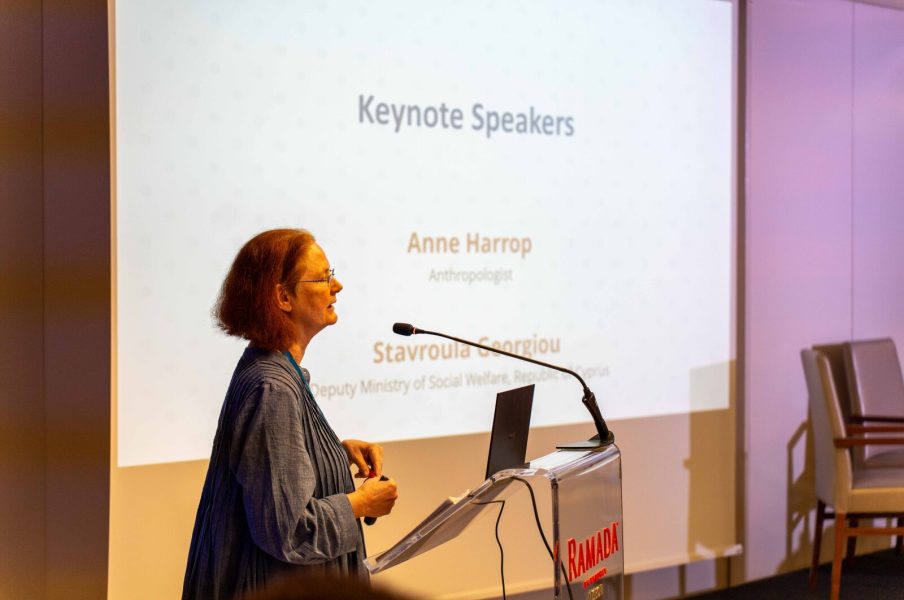
On May 21-22, 2024, the European Competence Centre for Social Innovation hosted a significant event titled “ESF+ for Integrated Pathways: Fostering Social Cohesion: Exploring the mutual benefits of building a two-way inclusive society from the Care and Service viewpoint”. The event aimed to explore the mutual benefits of building a two-way inclusive society, particularly focusing on the care and service sectors.
The primary goal of the event was to discuss the long-term advantages of investing in holistic migrant inclusion and its positive impact on the care sector and the ageing population’s needs. The gathering brought together experts, practitioners, and policymakers to showcase successful practices and strategies that promote social cohesion and harness the potential of Third-Country Nationals (TCNs) in the care sector.
Among the key topics discussed was the positive contribution of TCNs in the care sector. Participants highlighted how TCNs significantly strengthen local communities through positive EEexchanges, sharing examples and good practices illustrating how these interactions enhance community resilience and cohesion. Another important topic was the enhancement of TCNs’ potential through strategic funding. The sessions focused on necessary actions and measures to maximize the contributions of TCNs in the care sector. Participants discussed strategies for accessing funding opportunities, such as the European Social Fund Plus, to ensure positive outcomes for all involved.
Addressing language and cultural challenges was another major theme. Participants explored various methods to overcome these barriers, which are crucial for effective inclusion. They presented solutions and tools for fostering better communication and understanding between TCNs and local communities. Employment barriers faced by TCNs were also a focal point, with actionable solutions proposed to facilitate smoother integration into the workforce.
The event dedicated specific sessions to the unique challenges for women in the care sector, emphasizing the need for targeted support and initiatives. Additionally, participants discussed innovative social innovation toolor territorial diagnosis The differences and how we understand integration and inclusion were also discussed, underscoring the importance of moving beyond integration towards inclusion.
Participants also had the opportunity to engage in study visits to four organisations, each offering unique insights. They visited A Avo Veio Trabalhar (Grandma Came to Work), a creative hub for individuals aged 60 and above that views age as a source of untapped potential. The visit showcased various craft workshops and cultural experiences highlighting the talents and passions of senior participants. At Manicómio, an organization focused on artistic innovation and mental health, participants learned about efforts to integrate contemporary artists with mental illness, challenging societal stigma and promoting artistic expression within a supportive community.
CRESCER, established in 2001, works to foster inclusivity for vulnerable groups. The visit highlighted numerous projects aimed at promoting health, harm reduction, and community integration for marginalized individuals. Finally, participants visited Serviço Jesuíta aos Refugiados, an international NGO that supports migrants and refugees with social, psychological, medical, and legal assistance.
After two days of fruitful discussions, the participants left with a deeper understanding of the mutual benefits of fostering an inclusive society. We sincerely thank everyone for joining us in Lisbon.
European social fund agency
M. Katkaus str. 44, LT-09217 Vilnius
Company code: 192050725
Work hours:
I-IV 8:00-17:00 (Lunch break 12:00-12:45).
V 8:00-15:45 (Lunch break 12:00-12:45).
Phone: +370 (5) 264 9340
Email: info@esf.lt
